WHAT WE DO
We develop theoretical and computational methods such as first-principles Open Quantum Dynamics based on density-matrix formalism and Many-Body Perturbation Theory to understand and predict complex solid-state and nanostructures’ properties such as spin-optronics, excited-state dynamics, defect physics, spin and electron relaxation and transport with many-body interactions at the atomistic levels, for quantum information science, microelectronics, and energy conversion applications.
Our research is currently funded by National Science Foundation (DMR/CMMT, CHE, Wisconsin MRSEC), Department of Energy – Basic Energy Science (Computational Chemical Science, Computational Materials Science, EFRC CHOISE), AFOSR (Young Investigator Program, CFIRE), MOORE Foundation, and SLOAN Fellowship.






OUR RESEARCH
Current research topics: a) electronic excitation including many-body interactions; b) spin relaxation in solids by density-matrix dynamics; c) solid-state spin defect properties.

PUBLICATIONS
Resource our publications and documentation. Publications are presented in chronological order to view the evolution of our research and theoretical developments.

TEACHING RESOURCES
Teaching materials and guidelines for students and interested parties. Various lessons plans and educational resources. Additional support for ongoing classes will be posted here.
Recent News
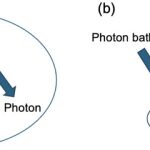
First-principles open quantum dynamics for solids based on density-matrix formalism
Congratulations to Jacopo Simoni, Gabriele Riva, and Yuan Ping on "First-principles open quantum dynamics for solids based on density-matrix formalism", published in The Journal of Chemical Physics on November 6 2025!
December 1, 2025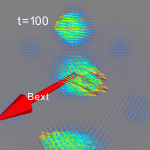
Spin non-collinear real-time time-dependent density-functional theory and implementation in the modern GPU-accelerated INQ code
Congratulations to Jacopo Simoni, Wuzhang Fang, Andrew Grieder and Yuan Ping for their work with Xavier Andrade Alfredo A. Correa, and Tadashi Ogitsu on "Spin non-collinear real-time time-dependent density-functional theory and implementation in the modern GPU-accelerated INQ code", published in APL Computational Physics!
October 14, 2025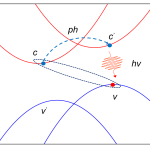
Phonon-assisted radiative lifetimes and exciton dynamics from first principles
Congratulations to Chunhao Guo, Gabriele Riva, Jacopo Simoni, Junqing Xu, and Yuan Ping for their work on "Phonon-assisted radiative lifetimes and exciton dynamics from first principles", published in Physical Review B on October 8!
October 14, 2025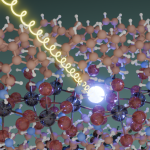
Relation of Continuous Chirality Measure to Spin and Orbital Polarization, and Chiroptical Properties in Solids
Congratulations to Andrew Grieder, Shihao Tu, and Yuan Ping for their work on "Relation of Continuous Chirality Measure to Spin and Orbital Polarization, and Chiroptical Properties in Solids", published in Advanced Optical Materials!
October 7, 2025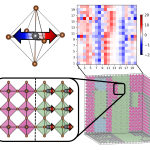
Carrier Localization and Spontaneous Formation of Two-Dimensional Polarization Domain in Halide Perovskites
Congratulations to Andrew Grieder and Yuan Ping for their work with , Marcos Calegari Andrade, Hiroyuki Takenaka, Tadashi Ogitsu, and Liang Z. Tan on "Carrier Localization and Spontaneous Formation of Two-Dimensional Polarization Domain in Halide Perovskites", published in Physical Review Letters!
October 7, 2025- More News




